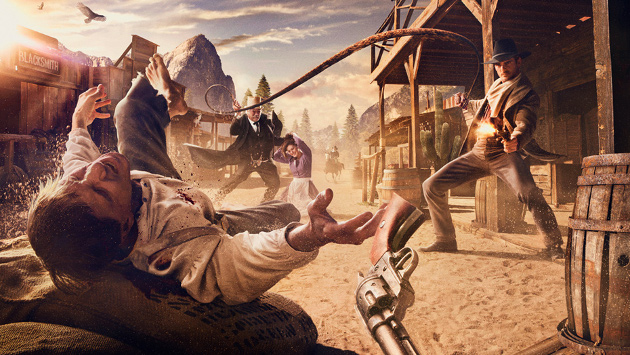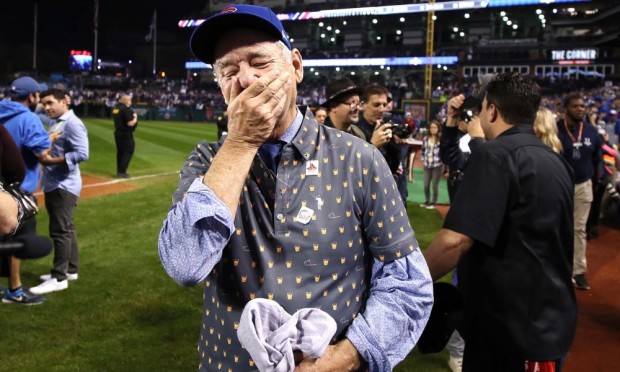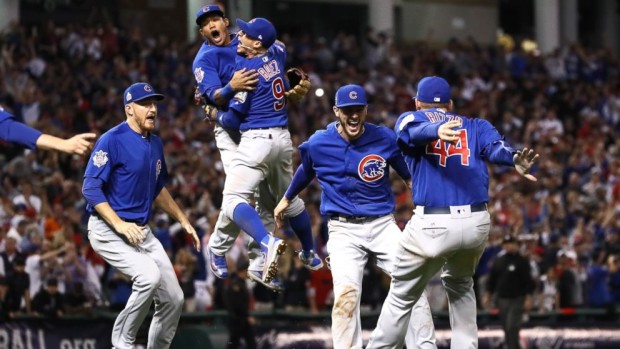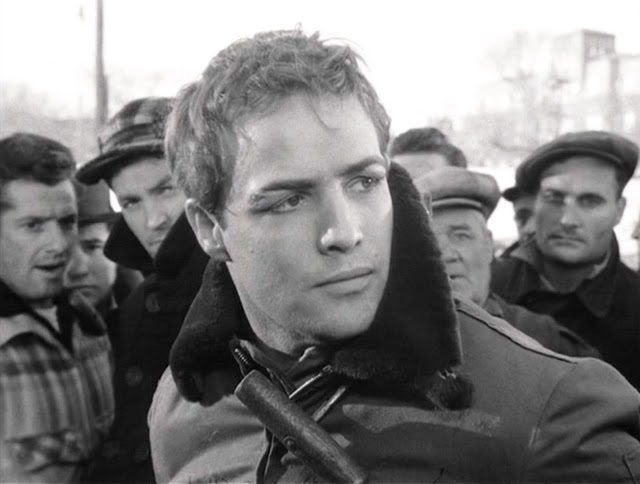EDIT – WINNERS ANNOUNCED!
So 4 of the top 5 entries consisted of 4 of the top 5 contributors within the group. That gave me some pause. Is everybody here getting a fair shot? With that said, I realize that there’s a couple of things at play here. For one, people are more likely to check out the scripts of the people they know. This isn’t just true here at Scriptshadow. It’s true in Hollywood.
So we’re basically preparing screenwriters for the real world. And just like the real world, if you want to break through that nepotistic malaise that producers either directly or indirectly participate in, give us a concept that makes it impossible to not open your script, then write a first ten pages that makes it impossible for us to put your script down, then write another 100 pages that make it impossible for us to stop reading. It’s just the way it is. And that seems like it’s what’s happened this weekend with Breaking Them Up.
Another thing that factors into this is that the people who participate here tend to be the people who care more about learning the craft of screenwriting. So it makes sense that their scripts, on the whole, would be better than those who aren’t participating. These writers are always learning new tools, building networks with other writers here, using those people to get feedback on their scripts. So it makes sense that their scripts would be better. Hence, I’m excited to announce that the four winners of the Wild Card Round are…
Katherine Botts – Cratchit
David Waddell – Breaking Them Up
Steffan DelPiano – Odysseus and His Boy
Kenneth Kleemann – Hellfire Alley
I’ve already chosen who will participate in the first round of the Quarterfinals next week. Those writers will be personally contacted by me via e-mail and given until Wednesday night to make any last changes to their scripts. Congratulations to everybody here for a tight race and let the Quarterfinals begin!!!
ORIGINAL POST BELOW
YEEEE-HAWWWW! GRAB YOUR GUNS, BOYS! IT’S ABOUT TO GET WILD!
The top 8 scripts have already been chosen for the Quarterfinals of the Scriptshadow Screenplay Tournament. Today we take 8 scripts that gave those winners a run for their money and pit them against each other. You, the readers, will decide which 4 of these wild-cards advance to the quarterfinals. Just like previous weeks, your job is to read as much as you can from each entry and vote on your favorite in the comments section. The top 4 vote-getters will move through and next week we’ll begin the Quarterfinal Round.
Since everyone has a limited amount of reading time and 7 out of 8 of these scripts have been rewritten, I’ll allow the writers to chronicle the changes they made in the Comments Section if they want. It’s no substitute for reading the script, but at least you’ll be able to make a more informed decision.
One last thing: PLEASE VOTE FOR THE BEST SCRIPT, NOT YOUR BEST FRIEND. If you haven’t read any of these scripts and you’re not going to read them this weekend either, I’d rather you not vote at all than cast a vote for a friend. The idea is to have the best scripts competing, not the most popular commenters competing. If the top 4 vote-getters on Sunday are the 4 most popular commenters within today’s grouping, I’m probably going to pick my own top 4 (hey sorry – wild card rules, baby). Let’s find the best scripts here, guys. On to today’s entries!
Title: Felix (new draft!)
Writer: Casey Giltner
Genre: Horror, Coming-of-age
Logline: After his great-grandmother’s death, ten-year-old Felix is troubled by a potentially haunted family heirloom and his father’s increasingly strange behavior.
Title: Breaking Them Up (formerly “Untitled Breaking Up Parents Marriage Comedy”) (new draft!)
Writer: David Waddell
Genre: Comedy
Logline: Convinced that his constantly feuding parents are headed for a divorce, a 14 year old sets out to find new lovers for his mom and dad in hopes of ending their marriage.
Title: Odysseus and His Boy (new draft!)
Writer: Steffan DelPiano
Genre: Period
Logline: With only one night to act, two rival soldiers must sneak behind enemy lines to complete a last-ditch suicide mission that will finally put an end to a decade-long conflict.
Title: Hellfire Alley (new draft!)
Writer: Kenneth Kleemann
Genre: Western/True Story
Logline: The gritty, UNTOLD story behind the real outlaws who inspired the classic film, THE WILD BUNCH.
Title: Widow’s Walk (new draft!)
Writer: Brett Martin
Genre: Contained Thriller
Logline: A psychic breaks into a haunted house to confront a malevolent force from her past that she believes has abducted her daughter.
Title: A Darker Place – (same draft)
Writers: Andrew Rhodes and Robert Irvin
Genre: Contained Thriller/Sci-fi
Logline: In the home of her latest case, an obsessed social worker fights to save a girl being tortured in the basement of that very house … 24 years in the future.
Title: Cratchit (new draft!)
Writer: Katherine Botts
Genre: Mystery & Suspense, Fantasy
Logline: “A Christmas Carol” reimagined, told from the point of view of Bob Cratchit as he and Ebenezer Scrooge race to track down Jacob Marley’s killer — the same killer who now targets Scrooge and Cratchit’s son, Tiny Tim.
Title: 21 Days in the Amazon (new draft!)
Writer: Ben Koch
Genre: Found Footage Horror
Logline: When the cast and crew of the reality show Bared and Scared film an episode in the Amazon, surviving the deadly jungle proves less frightening than surviving an unhinged contestant.
For those who don’t know, I’m from Chicago. And in Chicago is a certain long-suffering baseball team known as the Cubs who had not won a championship in 108 years. Until last night. When the most dramatic World Series win in history took place.
So as I pondered what to write about in today’s article, I went back to a strategy that’s always served me well. My articles are best when I’m passionate about something. And today, I’m passionate about my Cubbies.
So here are five screenwriting lessons inspired by your 2016 World Series Champion Chicago Cubs!
Love What You’re Writing About – One of the reasons the Cubs were so bad for so long was because they were owned by the Chicago Tribune, a giant (at the time) news company that couldn’t give two shits about the team. Because they didn’t care, all the decisions that were made from the top down lacked the passion required to create greatness. Then, in 2007, the company sold the team to a lifelong Cubs fan, Tom Ricketts. From that moment on, everything changed. Ricketts brought in the smartest president in baseball, Theo Epstein, who subsequently hired the best manager in baseball, Joe Maddon. Joe Maddon brought in a top-notch coaching staff, who would later help one of the youngest teams in baseball win a World Series.
In screenwriting, your script is your team. And if you don’t care about your team, you’ll never put them into a position to win. I truly believe that. But if you’re passionate about your screenplay. If you can’t think of anything other than your story and your characters and your plot and what that script is going to look like on the big screen. Then the chances of your script electrifying a reader go up infinitely. Love the script you’re with!
Have a Plan – When Theo Epstein inherited the Cubs, he redesigned the organization from the top down. The Cubs used to be a group of aging overpaid overvalued losers who were more interested in a paycheck than winning. Their minor league teams, where franchises develop young players to feed into their big league team, were bone dry. So Epstein came up with a plan. Trade away all their big league players for unproven but talented young players they could develop through their minor league system. The problem? It would mean waiting through three full seasons of futility while the young players developed with no guarantee that they’d be good.
It was risky. It was a gamble. But it worked. The Cubs didn’t just win the World Series, but because of their plan, they now have the youngest team in the big leagues, which means they’re set to win championships for years to come.
Tying this into screenwriting, most writers don’t have a plan. They stumble through one screenplay after another, seeing what happens along the way, making things up as they go along. Screenwriting is too difficult for that. You look up, five years have passed, and you wonder how you’re in the same spot as you were five years ago. The solution is to come up with a plan. Give yourself deadlines. Have months set aside for working on things (reading scripts, reading screenwriting books, practicing screenwriting concepts). Figure out what scripts (and types of scripts) you’re going to write. Come up with a game plan for when you’re going to finish these scripts and who you’re going to send them to. A plan increases your chances of success infinitely. So get on it.
Fight – Screenwriting is fucking hard man. Most of the time it’s just you and the page. And when your story’s going south, your characters are lame, and you don’t have any good ideas left, you want to give up. It’s happened to me. I once got so discouraged by a script that I set it down, figured I’d try again tomorrow, and didn’t write for 8 months. It’s so easy to give in. But like these Cubs taught us last night, you gotta fight. There was a moment in the 8th inning, after the Cubs had been up 5-1, where the Indians homered to tie the game. Without question, the Cubs of the past would’ve let this destroy them. Chicagoans had seen it decade after decade. But this year’s team was different. They treated adversity like a challenge to be overcome, not a sign to go play Call of Duty nonstop for the next four months. So the team got together, reminded themselves that it wasn’t over, and they went back out and won the game. If a team that’s been denied for 108 years can fight through adversity, I know you guys can get through that plot problem, that bout of writer’s block, that lack of motivation to open up your script. Writing a great screenplay will require you to fight through a lot of shit that you don’t want to deal with. It’s part of the journey.
Find A Support System – One of the common things I’ve heard from friends who were at the games was: “I hugged 20 different people I didn’t know before tonight.” There’s something about sports that brings people together. Unfortunately, writing isn’t like that. It’s a mostly solitary endeavor. And it’s not discussed how big of an impact that can have on a writer. When your main character, Kango, is unlikable, and you’re trying to decide whether to give him a sidekick who’s dying of cancer to offset that, there is literally nobody you can ask if that’s a good idea other than yourself. With that said, when you have a writing community you’re a part of, people to trade scripts with, people to talk about writing with, it’s so much damn easier to get through those moments. Just having someone you know will read your script when it’s finished is a huge motivator to figure things out and get to FADE OUT. Get a writing group together, guys. Here, in the Scriptshadow Comments, is one of the best places to start.
Good things come to those who wait – Despite the core of the Cubs being in their early 20s, the MVP of the World Series was 35 year-old Ben Zobrist. While our crazy talented young shortstop, Javy Baez, was swinging at every pitch, trying to be a home run hero each time up, it was the calculated and cool Zobrist, who used his dozen extra years of experience to approach each at-bat like a sniper, waiting patiently for the pitcher to make a mistake. It was this approach that resulted in the most hits in the series, and a crucial late-game double that gave the team the go-ahead run. Every writer feels like they’re getting too old to pursue the dream. But remember, it’s the 40 and 50-somethings and their wealth of experience, who are writing all the big movies and TV shows we watch each week. So don’t think of your age as a weakness. Think of it as an advantage, one extra year of experience that gives you a leg up on your competition.
Hey guys. On this glorious day, a day when the Cubs curse has been lifted, I’ve just sent you a spanking new Scriptshadow Newsletter. I review a really good spec script that’s a great screenwriting lesson in how to write genre material at a low price (and get a major studio to turn it into one of their franchises). I also lay out the top 8 seeds in the Scriptshadow Tournament. And I announce a really cool new Scriptshadow Contest that’s coming up after the tournament. So you’re definitely going to want to read this newsletter.
If you don’t see the newsletter in your inbox, check your SPAM and PROMOTIONS folders. It should be in there. If it isn’t, e-mail me at Carsonreeves1@gmail.com with the subject line “NO NEWSLETTER” and I’ll send it to you personally. If you want to be added to the newsletter, e-mail me at the same address with the subject line “NEWSLETTER” and I’ll send. And hurry up if you want a shot at the half-off consultation trivia!
NEWSLETTER COMING LATE TONIGHT: And it’s a doozy. Not only do I review an IMPRESSIVE script, but I also give you the SEEDINGS for the Scriptshadow Screenplay Tournament. There will also be some must-grab deals on script consultations. I’ll announce on Twitter and add a post here as soon as it goes out. Sign up by e-mailing “NEWSLETTER” to Carsonreeves1@gmail.com and be sure to check your spam and promotions folders!
Genre: Thriller
Premise: (from Blood List) When a couple living in a Brooklyn high-rise think that a man in the building across the street is looking through their window, their paranoia grows until they begin to suspect he might actually be a killer at large who the news refers to as The Headhunter.
About: This script finished number four on The Blood List, the annual list of the best horror, thriller, and sci-fi scripts. I reviewed the number one script on Monday and the number two script earlier in the year (my favorite so far).
Writer: Zack Ford
Details: 90 pages
I’m a nervous wreck. Two days ago, I’d accepted the Cubs’ fate. They were down 3 games to 1 in the World Series, no hope of coming back. It’d been a fun season. But mentally, I’d resigned myself and moved on. They weren’t going to win.
And then they had to go and win 2 games in a row. And now it’s tied. And the 7th game of the World Series is today. And I don’t know what to do with myself. I can’t concentrate on anything. I keep thinking: What if this is actually the year?
Do you know how big of a joke the Cubs losing has become in Chicago? We have this saying, “Wait until next year.” We usually start using it around mid-season, as that’s when it becomes clear that the Cubs are, once again, not going to make the playoffs.
Well, it got so bad that we started using that saying on the opening day of the season. “Wait until next year.” It was an ongoing joke. WE were an ongoing joke. We knew the Cubs weren’t going anywhere. And we were okay with that.
Yet now, after 108 years, they actually have a chance to win the World Series. You don’t realize how bizarre this is for somebody who’s lived his entire life accepting that this would never happen. It doesn’t seem real. So, to be honest, I don’t know what to do with it. I don’t know how to mentally compartmentalize it so I can do other things.
I’ve just been staring at the wall most of the day with this weird “Huh?” look on my face.
Amongst these endless huhs, I will attempt to write a script review. Hope it’s more of a Kris Bryant Home Run than a Steve Bartman Interference.
Julia and Francis have just moved into a new apartment in Brooklyn, where Francis has secured a prime-time advertising job. But immediately – and when I say immediately, I mean within seconds – things start going wrong.
Julia’s convinced that there’s a man in the high-rise across the street who’s staring at her. When she tells Francis about him, he’s not so sure. But since there’s a killer on the loose, a man who slices people’s heads off, he can’t be too careful.
So the two monitor the man, first in his window, and eventually around the neighborhood. This dude is a big fucker, and he’s always wearing this raincoat and rain boots. But, of course, they can’t be 100% that he’s the headhunting serial killer who’s been turning people into real-life Halloween costumes.
Things get interesting, however, when Julia goes to the local supermarket and Raincoat Dude follows her there. Francis’s checking of the subsequent security footage proves that this man’s definitely following his wife around.
But that begs the question: What do they do about it? It’s not like you can go to the police and say, “This man stares at us from across the street so he’s probably the serial killer you’re looking for.” But Francis has got to do something. Julia wants out of this apartment pronto. And she’s counting on Francis to take care of it.
However, just when Francis secures a solution to the problem, he finds himself stalked by our rain loving face-collector. Is it too late for Francis? I’d tell you, but I don’t want you to get a-HEAD of yourselves. Heh heh heh.
Here’s what I liked about this script. It was a super fast read, and it had a lot of fun with its set pieces. I thought moving away from the traditional horror locations (attics, basements, old houses) really benefited the screenplay, with my two favorite scenes being the supermarket stalking and the late-night subway car confrontation.
The problem with The Watcher, unfortunately, is that it’s too thin.
Early on in our screenwriting education, we’re told to strip everything away and only focus on the areas of the story that push it forward. This is good advice unless you take it too literally. If you give us only the barest of bones, there’s no meat to grab onto.
It’s like if someone told you not to eat too much cause you want to stay skinny, and you took that to mean you should only eat exactly how many calories you needed to stay alive. You’d be a skeleton.
And that’s what this script felt like, a skeleton.
I mean we knew these characters for literally three seconds before Julia sees the man in the window across the street. It was like, whoa man, slow your roll. Let’s get to at least know you first!
The counter-argument to this is, “Well don’t you tell us to jump right into the story, Carson? Isn’t that what good screenplays do? Start quickly?”
Yes. But there’s a difference between jumping right into your story and jumping right into your concept. You want to build up to your concept (a man living across the street who watches you). Whereas with your story, you can jump into that in numerous ways without breaching your concept yet.
For example, in Rosemary’s Baby, the opening scene is our characters being shown an apartment. We’re pulled in by their excitement, as well as a mid-scene mystery — a secret closet our character spots that’s been hidden for some reason.
That’s important to remember. You don’t have to tear our eyes out with some balls-to-the-wall super-opening for your first scene to be a success. It only has to feel like something’s happening and we’re moving towards something that matters (in this case, towards the purchase of an apartment). If you can spike the scene to add curiosity (with a hidden closet), all the better.
But yeah, we’re not starting Rosemary’s Baby with Rosemary having her baby.
I was also hoping for more unexpected things to happen in The Watcher. Outside of a couple of scenes, when we were told something was going to happen, it usually happened. Scripts need to utilize the opposite approach. You tell the audience it’s going to happen one way, and then it happens a completely different way.
For example, after we see Julia stalked by the killer at the supermarket early in the story, Francis goes back to the supermarket and asks an employee if he can look at the security tape. When he watches the tape… everything happens exactly like we saw it happen with Julia. “He’s really stalking her,” Francis says.
How much more interesting would this have been if the tape showed that he didn’t stalk Julia at all? This would’ve made things so much more complicated. Now Francis is wondering if his wife is losing it. Yet she’s in such a fucked-up state, he can’t tell her that’s what he’s thinking. And everything, from how he talks to his wife to how he approaches the situation, becomes a lot more complicated.
That’s the world you want your characters dealing with in the second act. There shouldn’t be any easy choices. If the problem is: Killer is over here and the solution is: therefore we must go over there — that’s not very interesting.
But if the problem is: I’m not sure if that’s the killer. My wife might be crazy. But my wife is telling me she’s leaving me unless we get out of this apartment. But I emptied out my savings to get this place and we’re not getting our money back if we leave and I don’t have enough money to get us a new place… now you’ve got a movie.
I wanted more of that complexity here but unfortunately I didn’t get it. Then again, screenwriting is all about rewriting. And I’m sure there are some already well-versed managers and agents telling Zack this stuff.
So with that I say: Go Cubbies.
[ ] What the hell did I just read?
[x] wasn’t for me
[ ] worth the read
[ ] impressive
[ ] genius
What I learned: Things should rarely go according to plan in storytelling. Your characters should have a good idea of how things are going to go… AND THEN YOU MAKE SURE THEY DON’T GO THAT WAY. Try it out and watch your scenes improve. If your character is going to pick up his daughter after school, have the teacher tell him she needs to talk to him about something bad his daughter did that day. If your character plans to break up with his girlfriend, have her tell him she’s pregnant right before he breaks the news. If your character has been meticulously planning a bank robbery for six months, have him show up only to see that there’s a Police Appreciation Parade running down Main Street that day and the entire police force is out in tow. Things should never go according to plan!
Due to my impending death, I couldn’t get a full post up today. The good news is that a new Scriptshadow Newsletter is coming out within the next couple of days! In it, I’ll be reviewing another hot trend – studios buying specs to adapt into already-owned franchises. This one is a small but intense spec that a major studio purchased to jump start an early 2000s franchise that could’ve been awesome, but they screwed it up big-time (for those guessing, I’ve talked about the film here within the past year). So make sure you sign up for the newsletter if you’re not on it already. Just send the word “NEWSLETTER” to Carsonreeves1@gmail.com
Now on to today’s tip, which is actually inspired by yesterday. In the number 1 Blood List script, Orb, I discussed the notion of exposition in scene-writing, with backstory being a part of that. Backstory is any information you include about your characters or plot that occurred before your story started. If your main character’s mom died during child birth and you have one of your characters tell us this, or even jump back in time and show it? That’s backstory.
So today’s question is, when should you include backstory? The quick answer is: ALMOST NEVER. Seriously. Screenplays work best when they’re dealing with the present moment. Therefore, characters talking about the past or us going into the past is moving away from the strength of the medium. However, sometimes you need to add context to your plot and your characters and backstory is the only way to do that.
That leads us to the more involved answer: If the audience can approximately fill in the backstory themselves, you don’t need to include it.
“Approximately?” What the hell does that mean, Carson? Say we meet a Marlon Brando-like blue collar character who grew up on the wrong side of the tracks. Just from his weathered eyes, his defeated demeanor, some scars on his back, we know this dude had a rough life. Therefore, including a scene where he tells his girlfriend that his dad used to beat him up every Thursday after drinking with his buddies, doesn’t add anything to the narrative. We figured something like this must have happened, and this daddy abuse sounds about right. So it comes off as redundant.
However, if “Marlon” informed his girlfriend that, at one time, he was a chess prodigy ranked #3 in the world? That’s something we wouldn’t have guessed. This makes him a bit more interesting to us, and builds an extra layer into the character. Therefore, the argument for including this piece of backstory is much stronger.
Keep in mind, though, that as with any information you bring into a script, your backstory needs to be relevant to the story. If you’re going to tell us your character was a chess champion, that should pay off or slide into the story later. That doesn’t mean Marlon has to enter a chess tournament. But this “hidden intellect” might serve him well in a Good Will Hunting “How do you like them apples?” kind of way.
Backstory is a tricky monster that should mostly be avoided. But if you are going to use it, make sure it tells us things we wouldn’t have guessed ourselves. Or else what’s the point?







